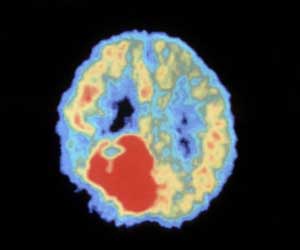Although there has been a great progress in improving survival rates for children with cancer, advances in pediatric brain cancer haven't been as dramatic.

‘Precision medicine has advanced to the point where it can now impact the care of a majority of children with brain tumors.’





The findings, reported online today by the journal Neuro-Oncology,
demonstrate that testing pediatric brain tumor tissue for genetic
abnormalities is clinically feasible and that in many cases the results
can guide patients' treatment."Although there has been a great deal of progress over the past 30 years in improving survival rates for children with cancer, advances in pediatric brain cancer haven't been as dramatic," says co-lead author Pratiti Bandopadhayay of Dana-Farber/Boston Children's. "In a recent study, brain tumors accounted for 25% of all pediatric deaths attributed to cancer. In addition, many of the current therapies can result in long-term difficulties in cognitive or physical functioning."
Since emerging from research labs more than a decade ago, targeted therapies for cancer have significantly improved the treatment of certain types of leukemia, digestive system tumors, and breast cancer, among other malignancies. The new study is unique in that it reports on the largest collection of pediatric brain tumors to be genetically profiled as patients came to clinic.
Pathologists and cytogeneticists performed the testing in a federally approved clinical laboratory - certified under Clinical Laboratory Improvement Amendments (CLIA) as the only type of labs in the United States whose findings can guide patient treatment. Dana-Farber/Boston Children's, the researchers noted, is one of the few centers in the country to regularly analyze the genetics of patients' pediatric brain tumors.
The researchers plumbed the genomes of 203 pediatric brain tumor samples, representing all major subtypes of the disease. They analyzed 117 of the samples with OncoPanel testing, a technology that sequences the exomes - the sections of DNA that hold the blueprints for making specific cell proteins - for irregularities in 300 cancer-related genes.
Advertisement
Of the samples tested by OncoPanel, 56% harbored genetic abnormalities that were clinically relevant - that could impact a patient's diagnosis or be targeted by drugs already in clinical use or under study in clinical trials. (Many of these drugs cross the blood-brain barrier, the dense web of cells that can prevent medicines from exiting the bloodstream to reach the brain.) Among the findings:
Advertisement
- The two-pronged testing approach revealed clinically relevant abnormalities in 89% of medulloblastomas, which account for nearly a fifth of all brain tumors in children. Combining the two tests was found to be particularly useful for these patients.
"The importance of genomic profiling in the diagnosis and treatment of pediatric brain cancers is reflected in the World Health Organization's recent decision to classify such tumors by the genetic alterations within them, rather than by broad tumor type" says study co-senior author Susan Chi of Dana-Farber/Boston Children's. "Targeted therapies are likely to be most effective when they're matched to specific abnormalities within tumor cells. Our findings show that precision medicine for pediatric brain tumors can now be a reality."
Source-Eurekalert















